Mencari Rahmat, Al Jafree Md Yusop’s Malay language adaptation of Oscar Wilde’s The Importance of Being Earnest, is finally available for all of us to watch. The movie, which was originally screened to select audiences throughout Malaysia in 2018, was supposed to have a theatrical release, but was unfortunately delayed multiple times, first because of money concerns, and then again due to cinema closures across the country when the pandemic hit.
Over the last few years, there has been an air of mystery around the movie. Those fortunate enough to have seen it would speak of it with veneration. Critics had nothing but raves. And despite not having a wide cinematic release, Mencari Rahmat still won the award for Best Screenplay and Best Supporting Actress (Adibah Noor) at the Anugerah Majlis Pengkritik Filem KL in 2018.
What’s it about? Well, it’s exactly what The Importance of Being Earnest is about. (But, you know, make it Malay.) Two local cads have created false identities in order to gad about town and put some excitement into their lives. Razak (Nam Ron) has invented a problematic younger brother, the titular Rahmat, whom he uses as an excuse to flee to KL in order to have some fun. His friend Azman (Amerul Affendi), on the other hand, has created the chronically ill Bunyamin, whom he uses whenever he wants to escape some tiresome social obligation. Things begin to go awry when their individual deceptions are discovered. Hijinks ensue.
Now, thanks to Mubi, we got a chance to see what all the fuss was about. Is Mencari Rahmat all that it was made out to be? Was it worth the wait?
Umapagan Ampikaipakan: Mencari Rahmat is what I would call a “noble effort.” Any attempt at adapting Wilde should be applauded. Let alone in another language. And this movie, while incredibly clunky at times, should be celebrated for its ambition.
Mencari Rahmat is good enough. Nam Ron and Amerul Affendi have great chemistry together. Adibah Noor is a national treasure and an unqualified delight. And so is Sharifah Amani. But for me at least, where the movie disappoints, is in how it utilizes its source material. But I’ll get to that later.
What did you think?
Bahir Yeusuff: I’m coming to this from a place where I suspect many Malaysians would be coming from. I know of the Oscar Wilde play, but don’t know anything about it. At all. So watching this was akin to watching an original screenplay. And I still had the same complaints you do.
You called the movie clunky and that is the perfect description of it. It feels like Mencari Rahmat was trying to reach for the farcical but it never quite got there. I think I would have appreciated it more had the story committed to it’s farce. The Reza character, the breaking of the fourth wall, the out of place butlers in the two households, all imply it, but either through direction, or storyline, or performance, it fell a little flat for me.
I could be reaching here, but Mencari Rahmat reminded me a little of the much maligned Stallone comedy Oscar in its mistaken identity story, and colourful characters, all of whom are playing at 11. But Mencari Rahmat didn’t do enough. It should have been a screwball comedy and leaned into its out-of-whack comedic elements, but it doesn’t quite reach for that.
UA: Where Mencari Rahmat worked was in its sendup of the typical drama Melayu. The overacting, the awkward laughing, the knowing winks at the camera, all of that made it very clear what Al Jafree Md Yusop was playing at. And all of that was very clever.
Oscar Wilde’s satire is so universal that it applies as much to the social mores of contemporary Malay society as it did to 19th century England. The parallels are as clear as day. We all have that aunty who is always working the social calculus of every situation. We know how much social custom, tradition, and societal value play a part when it comes to “love” and marriage. It may be 2021, but these conversations and considerations still take place in living rooms across the country.
It makes Wilde an easy fit. But where Mencari Rahmat falls short is in not going beyond the superficial.
BY: And here’s the thing. Everything you’re saying makes me want to watch that version of Earnest. Or maybe even read the original play. I didn’t get any of that in Mencari Rahmat. Maybe because I’m so used to seeing it in real life, that all those bits about cultural norms don’t stand out to me anymore. Mencari Rahmat isn’t a bad movie, but it isn’t good either. It feels like there was more the director should have done but didn’t. I wanted to like the movie but I was left a little disappointed, and I can’t quite put my finger on why.
An Adaptation, or an Interpretation, or Neither?

UA: There are two kinds of film adaptations. The first, is a direct translation from page (or stage) to screen. It’s taking a piece of literature, or theatre, and directly transposing it onto another medium. The second, is when a filmmaker is inspired by a work, captures its spirit, and uses that to tell their own version of that story. Both work equally as well. But both depend entirely on how well the director utilizes everything that the medium has to offer.
Mencari Rahmat falls short on both those fronts. The decision to shoot this in such a theatrical fashion means that Al Jafree Md Yusop doesn’t really utilize all of the tools made available to him from cinema. (I had issues with the blocking in this movie – when Azman claps to make a point and all we see are the tips of his hands, or when Razak gets down on one knee and we can only see the top of his head, etc.)
And then there is the adaptation itself. This should have been a Malay interpretation of The Importance of Being Earnest. This should have captured the quirks, and eccentricities, and contradictions of Malay culture and society. (God knows there’s a lot there to mine.) Instead, it’s a beat for beat recreation of the original. And that feels like a wasted opportunity.
BY: It could have been smarter in its writing, it could have been sharper in its social commentary, it could have been better in its approach.
That said, there were things in Mencari Rahmat that I really did like. The sharp suits (although probably not completely accurate to Malaysians of any social stature) were a nice touch. I appreciated the magical nature and the way Reza (I still have no idea who or what he is) was thrown around the movie, appearing at random, and breaking continuity. To me that showcased a confidence in the directing that I haven’t seen much of locally.
I also loved that the characters of Azman and Razak were drinking alcohol and rampantly smoking in the movie. I wonder if those scenes would have made it past our LPF, who would have no doubt been clutching at their proverbial pearls seeing that in a Malaysian made film.
I really wanted to like this. I mean, any movie that starts with Errol Garner’s Misty already has got points in my book.
Speaking of which, that discussion Razak and Azman have in the beginning of the movie about jazz and pop music felt a little out of place. Not in that it is inaccurate, but rather in the conversation itself. I understand that it was supposed to class distinction, and being uneducated or not, but it just felt a little forced.
UA: That felt like a callback to this all Black adaptation of Earnest from 1992, by Kurt Baker, where he has Lady Bracknell voice her disapproval of rap music while lauding jazz. Obviously.
BY: Obviously. But did it feel out of place for you? There is something about that conversation that just didn’t feel natural. I didn’t have a problem with the content of the conversation, just in the way it was delivered.
Dialogue. Dialogue. Dialogue.
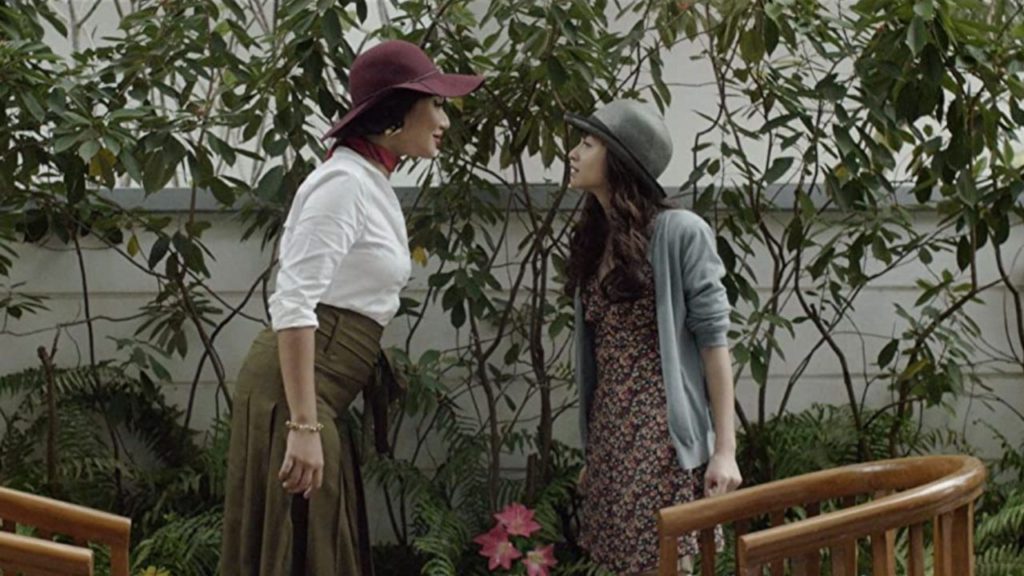
UA: I had one more gripe. And it’s a pretty big one.
There is good reason why almost every adaptation of Oscar Wilde, be it on stage or on screen, has gone out of its way to maintain as much of his language as possible. His genius was always in the way he used his words. It was magic. There are lines from Earnest that are ingrained into my brain merely by virtue of being so incredibly clever. Both in their wit and in the way they serve character.
“If I am occasionally a little over-dressed, I make up for it by being always immensely over-educated.”
“To lose one parent, Mr. Worthing, may be regarded as a misfortune; to lose both looks like carelessness.”
Those aren’t just snappy quips. They’re character moments. We learn so much about Algernon and Lady Bracknell from those two lines. Wilde derived his comedy and satire from his dialogue and not the situation. Yes, the circumstance that these two men find themselves in is indeed funny, but the humour came from their witty repartee.
Mencari Rahmat relies a little too much in the awkwardness of their situation. There are moments here that are direct translations from the play, but none of them exploit the poetry afforded by the Malay language.
BY: It’s that witty repartee which is missing here. My Bahasa Malaysia isn’t great, but there is this thing I find myself doing whenever I watch local movies. If a particular line sounds awkward, I translate it to English in my head. And a lot of the lines in Mencari Rahmat sound better when directly translated. And that is unfortunate because the beauty of the dialogue feels lost and comes off as stilted when translated.
UA: I will say this though. The title of the movie is genius. In the same way that “earnestness” was considered to be an over-riding societal value in Victorian times, so does the notion of “rahmat” in contemporary Malay society.
BY: I really wanted to like Mencari Rahmat. I’m really sorry I didn’t. Not knowing the original play shouldn’t be a problem when you’re doing an adaptation. I shouldn’t need to know the context of a story to like a movie. This isn’t a bad film and I am very happy that it’s out in a (slightly) more accessible way, but it just didn’t work for me.
UA: I do have three final questions. 1) Why was Reza’s Rolling Stones tee-shirt (seen in the image below) blurred out in the movie? 2) Why did they replace the Rolling Stones poster (also seen in the image below) with a photo of Azman holding a chainsaw. 3) When we first meet Ratna, was she pleasuring herself in the garden before lighting up that cigarette?


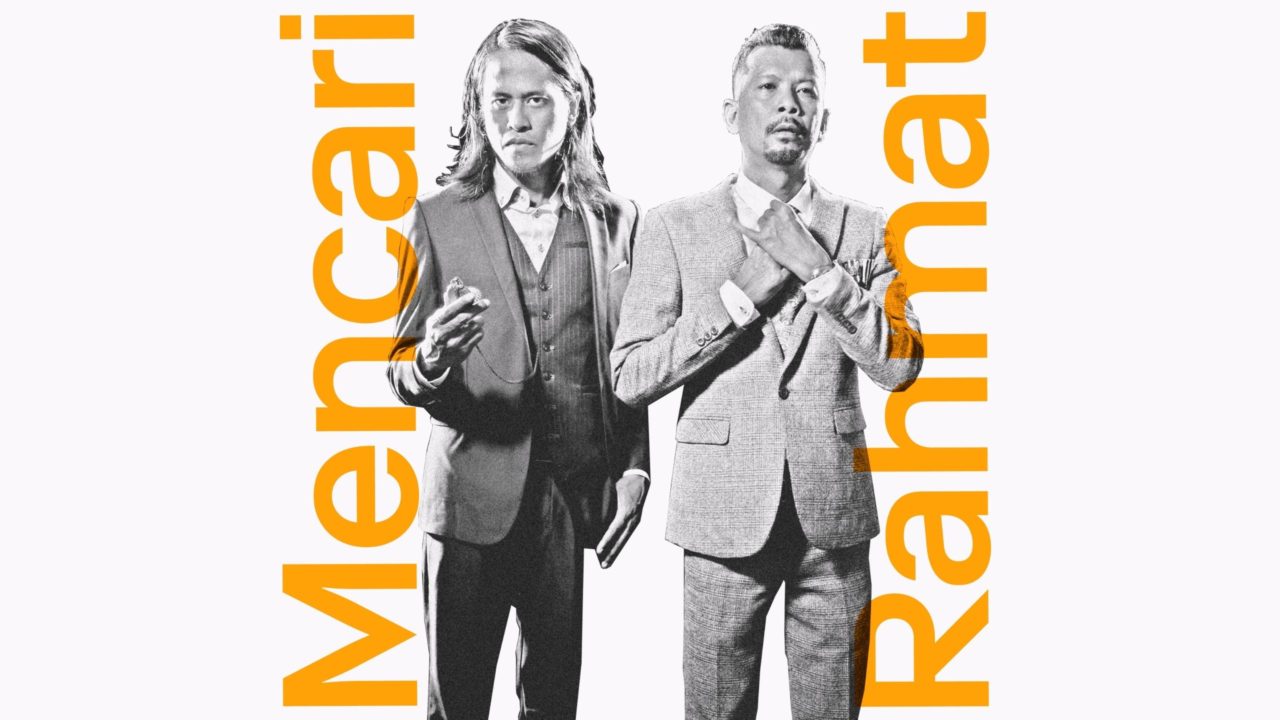
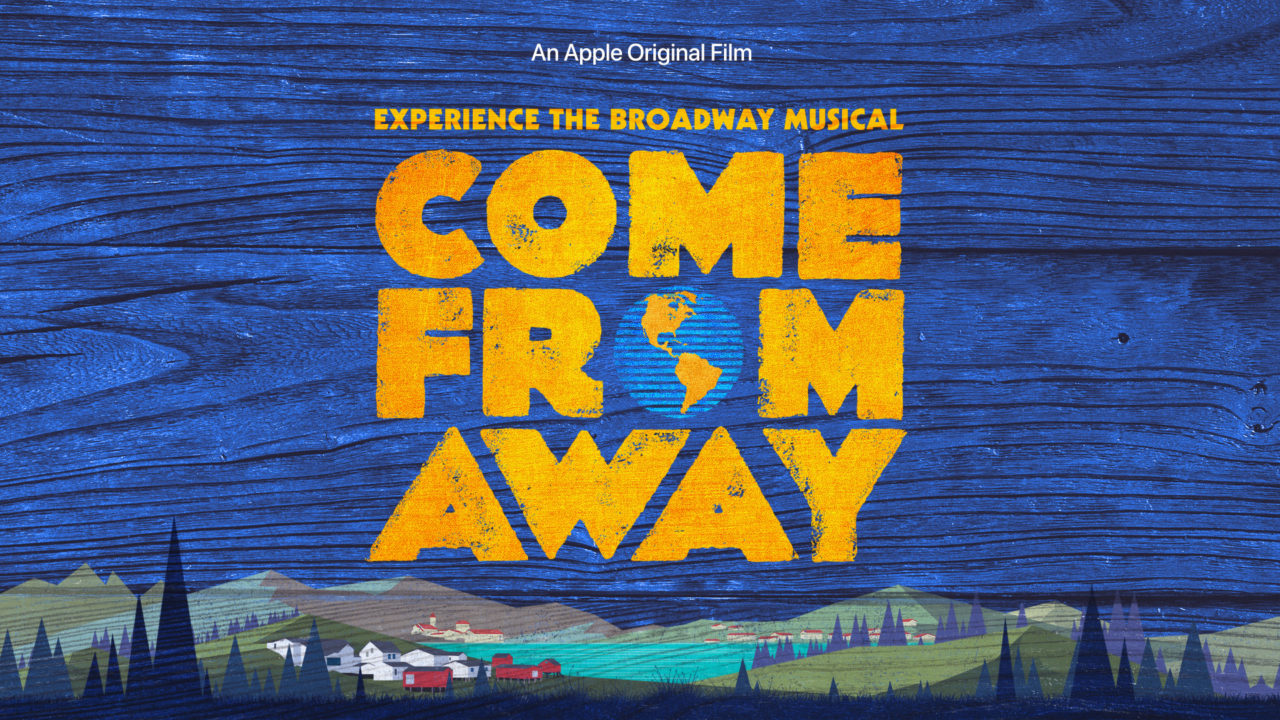
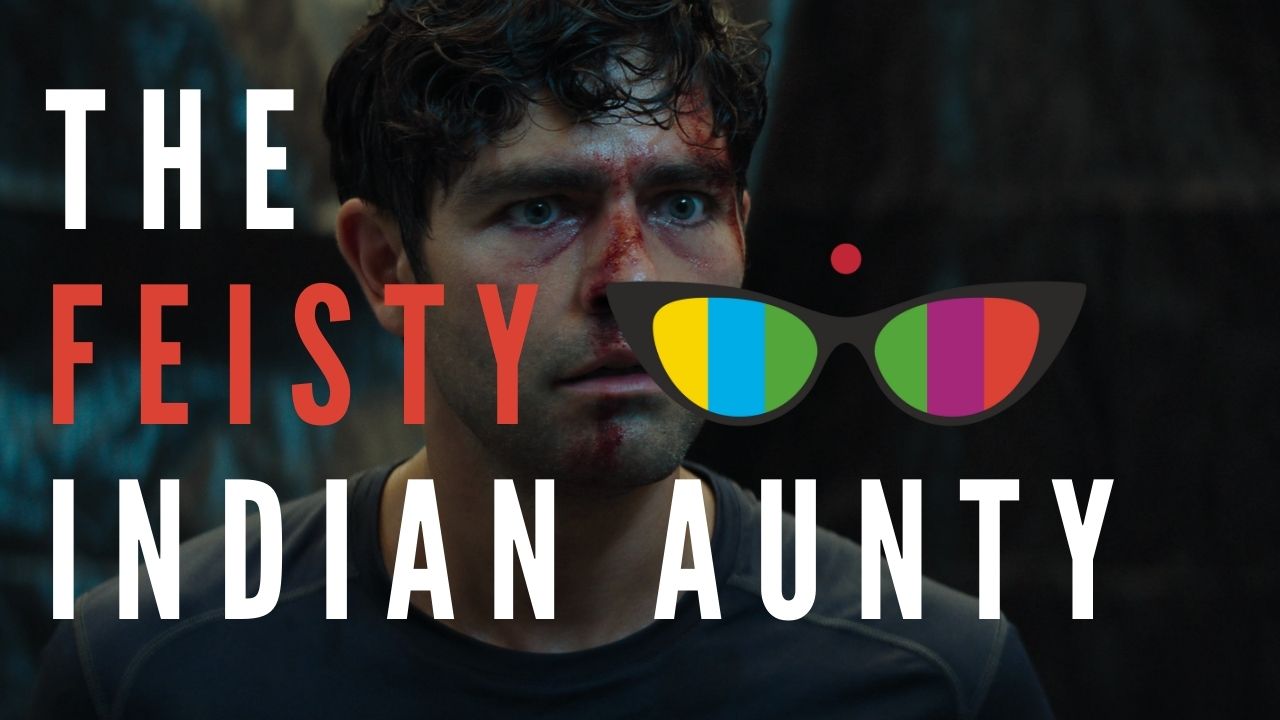
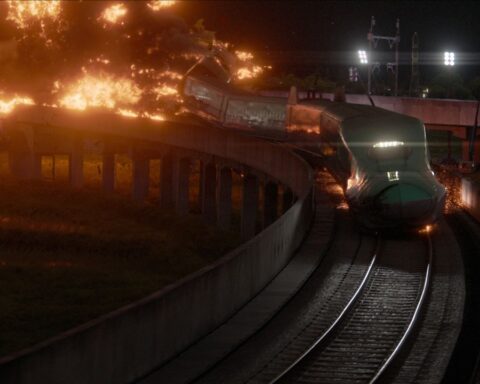



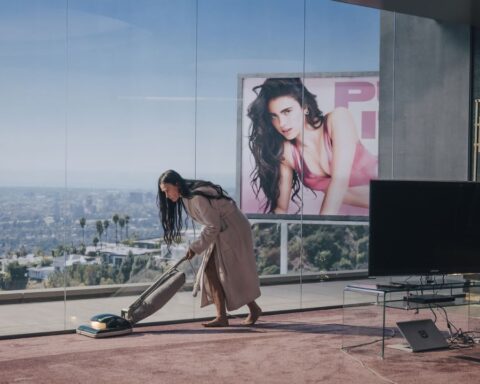
Follow Us